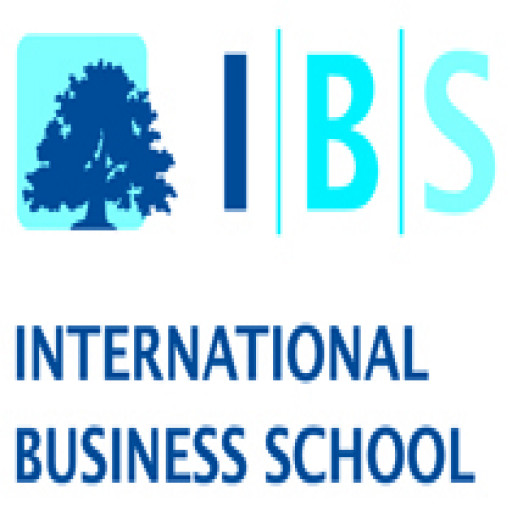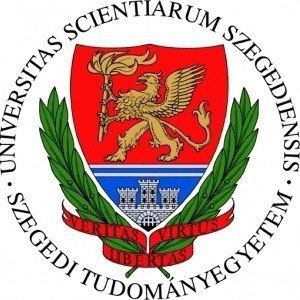Photos of university / #ibsbudapest
Bachelor in International Management at IBs Budapest offers students a comprehensive education designed to prepare them for the dynamic and globalized business environment. The program combines rigorous academic coursework with practical experience, equipping graduates with the skills necessary to excel in various international management roles. Students will delve into key areas such as strategic management, marketing, finance, human resources, and international business operations, providing a well-rounded understanding of how global markets function. The curriculum emphasizes the development of critical thinking, intercultural communication, leadership, and problem-solving skills, all essential for managing diverse teams and understanding complex international market dynamics. Throughout the program, students have opportunities to participate in internships, study abroad programs, and collaborative projects with multinational companies, fostering real-world experience and global networking. The faculty comprises experienced academics and industry professionals committed to high-quality teaching and mentorship. Modern facilities and resources support an engaging learning environment. Graduates of the International Management bachelor can pursue careers in multinational corporations, consulting firms, international NGOs, and entrepreneurial ventures, or continue their studies at graduate levels. The program aims each student to become a proactive, culturally aware, and innovative leader capable of navigating the challenges and opportunities of international business in an increasingly interconnected world.
MSc in International Management (ranked no. 8 in Eastern Europe!*) attracts a culturally diverse mix of international students. It is an ideal choice if you want to progress in your career from entry-level to a managerial position. Graduates go on to pursue a variety of successful careers in corporate organisations, or perform managerial roles in smaller and medium-sized organisations throughout the world.
*Eduniversal Master Ranking
Academic requirements:
International Management, Human Resource Management:
- first or second class Bachelor's degree in any field of study.
Financial Management, Marketing Management:
- relevant first or second class Bachelor's degree.
MBA in Data-Driven Management:
- Bachelor's degree in any field of study,
- transcript with at least one module in mathematics or finance,
- CV,
- work reference of 3-5 years,
- motivation letter.
Mature students not meeting the above requirements should contact us with their complete application documentation, which will be considered on an individual basis.
English skills:
MSc applicants are required to pass IBS’ own English Language Placement Test that consists of a 100 minute test and an Orientation Interview.
If the applicant has a certificate of
- The International English Language Testing System (IELTS, General) with a minimum overall score of 6.5 points
- The Test of English as a Foreign Language (TOEFL) with a minimum score of 90 in the iBT version
- Cambridge Certificate with a minimum score of 176 (C1 Advanced, C2 Proficiency)
- Pearson Test of English Academic (PTE Academic) with a minimum score of 58
- A C1 level English language certificate
- LCCI certificate with a minimum score of 60
- Previous studies in English
or if the applicant is
- Native speaker of English (based on passport citizenship),
the applicant is not required to take the written test, only the Orientation Interview.
The International Management program at the International Business School at Budapest offers a comprehensive approach to financing studies, designed to make higher education accessible and manageable for students from various backgrounds. The tuition fees for the program are structured to ensure transparency and competitiveness within the region. Typically, the program's tuition for domestic and international students remains consistent, though specific costs may vary depending on the academic year. For the latest figures, students are encouraged to consult the official IBS Budapest website or contact the admissions office directly.
To assist students in financing their education, the university provides several funding options. Scholarships are available based on academic performance, entrance examinations, or specific criteria such as merit or need. These scholarships can significantly reduce the financial burden and are awarded either partially or fully, depending on the applicant's qualifications. Additionally, the university has partnerships with financial institutions that offer student loans with favorable terms, allowing students to spread out tuition payments over a period.
IBS Budapest also supports students in obtaining external sponsorships and grants from governmental or private organizations, which often have specific eligibility requirements and application procedures. For international students, there may be special scholarships designed to encourage global diversity within the student body.
Furthermore, the university actively promotes work-study programs and internship opportunities, enabling students to gain practical experience while earning income. Some students may also consider part-time employment during their studies, and the university's career services often assist in finding suitable positions either on-campus or nearby.
The overall cost of studying International Management includes tuition fees, accommodation, living expenses, textbooks, and other personal expenses. To help manage these costs, IBS Budapest provides guidance on budgeting and financial planning. It is worth noting that tuition fees generally increase annually due to inflation and operational costs, and prospective students should verify the exact fee structure each academic year.
In terms of payment options, the university typically allows students to pay in installments, facilitating easier financial management. Students are advised to review specific payment deadlines and methods upon admission confirmation. The institution is committed to supporting students financially, ensuring that those admitted to the International Management program can focus on their studies without undue financial stress.
Overall, the financing of studies at IBS Budapest is designed with flexibility and student support in mind, offering various pathways for students to fund their education successfully, including scholarships, loans, external grants, and flexible payment plans. By providing these options, the university aims to make quality education in international management accessible to a diverse student body, fostering global business leaders of the future.
Knowledge & Understanding
Students upon graduation should be equipped with
- global economic and managerial issues as they relate to strategic decision making;
- contemporary issues related to the dynamics of international business, including the phenomenon of globalization;
- practical implications of international business theories regarding the external and internal operations of multinationals;
- appropriate techniques to deal with complex issues critical to the success of multinational firms
Disciplinary & Professional Skills
Upon completion of this course, students should be able to:
- To create an opportunity for students to enter line and staff management positions in companies and develop international managerial skills.
- To study, review and put into practice both the “tried and tested” techniques and the latest concepts in the field of international management.
- To develop critical awareness of the global business environment and the relevant tools required to make a business or organisation successful in an increasingly competitive world.
- To develop students’ ability to critically evaluate a range of management issues and offer viable solutions to problems.
- To provide students with an understanding of methods and techniques that they can effectively apply both in a multinational company setting and an SME environment.
- To develop international managers, skilled in interpersonal and cross-cultural communications, and equipped with up-to-date knowledge on international management.
- To create a global and strategic mindset and to develop sensitivity to learning from other cultures.
- To build an appreciation in students of the need to continuously develop skills and knowledge throughout their careers.



